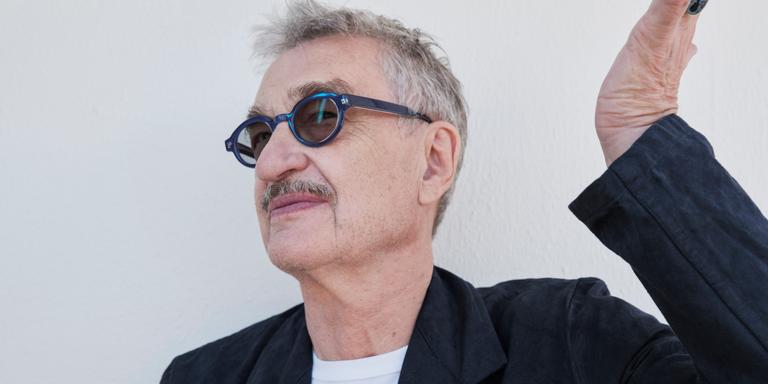


Director Wim Wenders: 'I'm a German romantic, America taught me that'
Interview'I wouldn't be where I am today if...' Every week, Le Monde interviews a celebrity about a decisive moment in their life. The filmmaker, born in August 1945 in Germany, looks back on his childhood in a country in ruins.
The 15th Prix Louis Lumière will be awarded in Lyon on October 20 to German director Wim Wenders, whose career spans more than half a century. At the age of 78, he is simultaneously releasing two films in cinemas: Anselm, a documentary devoted to the visual artist Anselm Kiefer, and Perfect Days, a Japanese drama.
I wouldn't be where I am today if...
... if, at the age of 22, I hadn't discovered that cinema was a wonderful alternative to painting. That it was even a richer art, since it involved all the others. It was a shocking discovery for me, as I'd always dreamed of being a painter. It was to this end that I had left Düsseldorf to study in Paris. But as my afternoons were free and my maid's room freezing cold, I took refuge at the Cinémathèque Française. I began by seeing one film a day, then two, then three, all presented by Henri Langlois, the founder of the Cinémathèque. Within a year, I'd seen the entire collection. I knew I wanted to be a filmmaker.
A radical change of course!
In truth, it was my second change of direction. Back in Germany, I'd started by studying medicine. My father practiced medicine with faith, and I thought it was a fine profession.
You worked in medicine to please your father...
Yes, but not only that. I'd worked in a hospital with the sick, and I loved it: washing them, feeding them, shaving them before operations.
You have to love people to choose to perform these tasks...
I liked people a lot. And I loved the hospital. But painting was on my mind, and I soon realized that it gave me more pleasure than my medical courses. When I told my father, he laughed: "I knew it all along! But it was up to you to find out for yourself!" That set me free. "Do you want to go to school?" he asked. "No, I want to go to Paris."
It was arrogant of me to set my sights on Paris right away, but I wanted to be at the heart of creation, where the great painters had studied. My father said: "Okay. I'll continue to provide for you at the level of what it would cost to go to a medical university or a German film school. But if Paris turns out to be more expensive, that's on you." So I wouldn't have got this far if my father hadn't let me come to Paris, home of the Cinémathèque!
Jean-Paul Sartre said, "Childhood decides." So what did your childhood decide?
All of it! But first, let me tell you about my lightning encounter with Sartre! See the corner of Boulevard Saint-Germain and Rue du Dragon? It was there, one winter evening in 1964, when it was snowing and I was running as fast as I could on the slippery road, that I collided head-on with a little gentleman who fell to the ground with his pipe still between his lips. He was raging mad. As I helped him up, apologizing, I recognized Jean-Paul Sartre. He shook off the snow clinging to his coat and stormed off. I didn't even have time to tell him that in literature class, when we'd been asked to translate a recent text into German, I'd chosen to translate Les Mots [The Words]. And I'd got a good grade.
You have 76.73% of this article left to read. The rest is for subscribers only.
